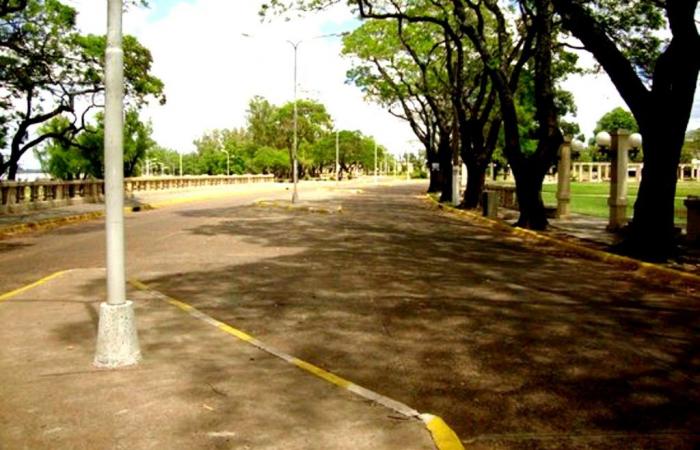
In an opinion column sent to El Entre Ríos, Salduna makes a historical review and proposes two names. In agreement with Sastre, the coastal avenue should once again bear the name of Roca, but to also pay homage to the native peoples, he recalls the figure of a “Guarani Indian.”
The complete writing
ABOUT CHANGE OF NAMES. AND A PROPOSAL
I have always believed that History is written by historians, sociologists, and researchers.
Those who spend hours reviewing files, verifying documentation, collecting testimonies.
And that History is not an exact science like mathematics: it will always be exposed to new evidence, different contributions, approaches or points of view appearing. There will never be a last word on any issue of the social and political future of human beings.
But now I find out that this is not the case: that history is written by “the winners.”
This means that every time a political force wins the majority of the Deliberative Council, it will be able to modify History, annul what its predecessors decided. lowering a figure from its pedestal, and elevating another or others.
In Concordia, for example, the majority of councillors decided some time ago to rename part of the Costanera, nominated by a previous Council in 1936 as “Julio Argentino Roca” and rename it with the bland title of “Indigenous Peoples”.
I use such an expression, not in a pejorative sense, because, in a world where human migrations have been a constant since Prehistory, “original peoples” in reality practically do not exist.
It would have been more appropriate, if one wanted to pay tribute to the primitive inhabitants of these lands, to speak of “Guaraní people”, “chana timbú” or “yaro”.
Or, since names were changed, use the name of some prominent representative of one of those communities.
Beyond the controversy, the truth is that Julio Argentino Roca has more than enough qualifications to have a public place in the city identified with him.
He was a progressive ruler, twice constitutional president at a time when Argentina became the sixth largest economy in the world.
He gave a formidable boost to popular education and the fight against illiteracy with the progressive Law 1420 (secular, free and compulsory education).
He modernized the legislation, with regulations such as the Civil Marriage Law and the federalization of the city of Buenos Aires.
His effective military campaign of 1879/80 included 60% of the national territory, the current provinces of La Pampa; Neuquén; Río Negro, Chubut; Santa Cruz and Tierra del Fuego.
Had they not done so, they would have been occupied by Chile, or, even worse, by England, which already had an enclave in the Malvinas, or perhaps by France (remember the well-known adventurer Aurelio Tounens, self-proclaimed “King of Patagonia”).
In an excellent recent article, Darío Garayalde mentions another important milestone deserving of local recognition: the construction of the port of Concordia, which became the third most important in the country.
Historian Walter Del Río, from the University of Quilmes, has made a serious study of the casualties in the military campaigns between 1879 and 1884, revealing that approximately between one thousand and one thousand five hundred “spear Indians” died in that period, most of them in combat.
Which refutes the accusation of “genocide”, so lightly spread.
These days we remember the holding of the “Congress of the East” or of the “Free Peoples”, convened by the Eastern leader José Gervasio Artigas and held in Arroyo de la China (today Concepción del Uriguay), on June 29, 1815.
Deputies from Entre Ríos, Banda Oriental, Santa Fé, Córdoba and Corrientes participated, and it was the first cry for independence, which preceded the historic Congress of Tucumán by a year.
What is not known is that for the first time, Guaraní Indians, delegates from the Missions, elected by their people, also participated in this libertarian event.
According to the historian Pablo Camogli, the deputies were: Eustaquio Aresayú and José Evaristo Aybó representing the mission of Santa María; Mariano Ñanduty to San Javier; Miguel Ibayú to Màrtires and Tomás Yuripá to San Carlos.
They recognized as their leader Andres Guacurari or Guazurari, a Guaraní Indian from the Missions, born, it is believed, on November 30, 1778 in present-day Santo Tomé (Corrientes), raised in Sao Borja (according to the Portuguese), San Francisco de Borgia on the Castilian payroll.
Related to José Artigas, the Protector gave him the rank of captain of Blandengues, head of a Guarani squad of more than a thousand soldiers from the Misiones and four hundred charrúas from the Banda Oriental.
They respected and respected him not only for the rank of captain and the horsemen that he wore in his worn uniform. He was also the favorite son of the Chief of the Orientales, who adopted him and authorized him to use his surname.
Along with his chief and adoptive father, this Guarani participated in legendary battles in the fight for Independence, both against the Spanish royalist armies and the advance of the Portuguese Empire (the Bandeirantes).
Defeated in an unequal fight, taken prisoner, he died after suffering cruel captivity in sordid prisons in Rio de Janeiro
My proposal then: that, for the reasons stated, the Costanera section be restored to its previous name of Julio Argentino Roca.
That, as a fair tribute to a fighter, representative of the Guaraní people, hero and martyr of the Banda Oriental, the Misiones and the Río de la Plata, the section to be inaugurated of the Nueva Costanera (Playa Nebel) be baptized as Colonel ANDRESITO ARTIGAS.
BERNARDO I. SALDUNA
“Justo J. de Urquiza” Association
Concordia (ER)





